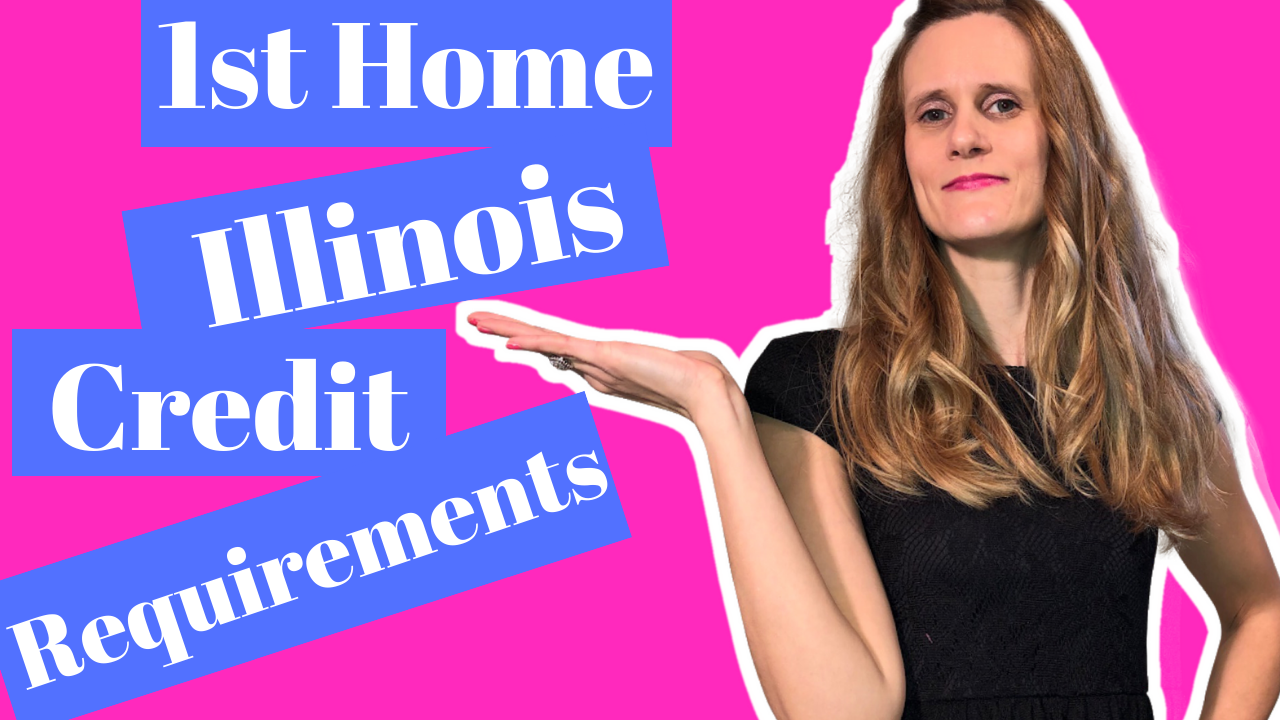1st Home Illinois Credit Requirements
I’m meeting with one of my preferred lenders to talk about 1st home Illinois credit requirements. You don’t want to miss this one. If this is your first time visiting my blog my name is Kerri Jonikas and I am a Realtor in Chicago’s southwest suburbs. Please consider subscribing to my blog. I post weekly articles about all things real estate, fun things to do in the area (EVEN SOME FREE THINGS TO DO ;), beautiful homes for sale, AND MORE. It is always my intention to provide useful information never to be a waste of your time. Have something you are interested in hearing more about? Let me know!
I’m here with one of my preferred lenders, Glen Marino and we are talking about 1st home Illinois credit requirements, but first let me tell you a little bit about Glen. Glen Marino is the branch manager of First Centennial Mortgage in beautiful downtown Naperville. Glen and I have been working together for some time now. He provides amazing customer service. Always looking for a way to help his clients the best he can. His support and knowledge has been a true asset for my clients. Glen has been working with the 1st home Illinois program for many years.
The 1st home Illinois is a grant of around $7,500 and it was designed for first-time homebuyers. The credit requirements are a minimum of 640 or better. certain counties approximately eight counties. The program itself has now been restricted as of January 1st to about four counties, Cook being the main county and then there’s some other ancillary counties. But it’s not the collar county.
There is a new program that just came out in February of 2018. the IHDA program, Illinois Housing Development Authoritythey came out in February of 2018 with the replacement program. It’s a six thousand dollar program, a seventy five hundred dollar program, and a ten thousand dollar program. So let’s talk about each of those. The six thousand dollar program is a grant. It is, if you meet the credit requirements that we talked about, 640 is the minimum credit score 640 or better, then you must have household income, that means husband, wife, and anybody 18 years or older must make income of a hundred and one thousand five twenty or less, they then get green light green, light and they can have access to this six thousand dollar program to begin with a forgivable grant. It’s not a loan, it’s a grant. And then it’s forgiven, over ten years.
The second program that came out with was the $7,500, zero interest on loan. Glen calls it the crazy good program. It’s crazy good in this sense, here’s $7,500, you met both credit and income, here’s $7,500, it’s zero interest, go out and buy your home with Kerri and we don’t want, there’s no monthly payments, for up to 30 years or whenever you sell the house. So again it’s here’s 7,500 go buy your home and when you sell the house 20 years down a little down the road pay us back to 7,500. So it’s just a great program. People say really, oh my god you’re gonna give me $7,500 ? I don’t have to give it back to you until I sell the house that’s the program.
The third program, and it’s probably one of my favorites, is the $10,000 program. Very similar to the 7500 except that it’s again it’s a zero interest loan except that there is a monthly, principal only payment, of $83.33. So if I say to someone “well if you were going out with your significant other and you’re taking them out for a glass of wine, a nice meal month what would it cost you on the weekend and they say well it could cost me 60 or 80 or $100 depending upon where we go. I say well tell you what, could you give up one meal a month and I’ll give you ten thousand dollars and you go buy a house?” Sounds pretty manageable right?
So a lot of these the programs are designed to help not only you know first-time homebuyers but it’s also designed to help anybody who’s an existing homeowner and we kind of also have helped people understand that the program can actually help him buy a home for his little as 1% of the purchase price. So you know when we tell people 1% they you know they shake their head go well how is it possible? Right?
What we do is we break it down into three buckets of cash. We say every real estate transaction needs a down payment bucket bucket, number two has to be your closing cost, and bucket number three is your escrows. So again, they need the credit score of 640 or better, if they make less than one hundred and one thousand five twenty, the only requirement these people have is they must come up with one percent of the purchase price out of their own funds.
So let’s use an example $200,000 home what 1% of 200,000 is $2,000 so let’s go to bucket number 1. Bucket number 1 is your down payment, so it’s three and a half percent is the down payment. Three and a half percent of 200,000 is seven grand. Well who pays it? Well if they have the seven grand, great! But if they don’t we need at least 1%, $2,000, can be their funds for the $7,000 down payment and now we go into that $10,000 down payment bucket from the state of Illinois and we’ll use 5,000 of it for their down payment bucket. 5 and to $7,000 they’ve got all the money they need to put a checkmark and the down payment bucket is filled.
Second bucket, closing costs, that’s $5,000, typically on most purchase transactions. Well again they say “I didn’t have money for the down payment, I definitely don’t have enough money for that 5,000 of closing cost.” Well again look at that $10,000 bucket, you know of down payment assistance from the state of Illinois, we only used $5,000 when we went for that down payment. Now we still got $5,000 still remaining in the down payment assistance funds. We use that for the closing cost. Customer comes up with nothing, the state of Illinois pays the whole $5,000.00.
Go to the third bucket and that’s gonna be escrows. Well in state of Illinois we pay real estate taxes in arrears you know and you’re a year behind, so our taxes in 2019 won’t get paid until the year 2020. So if you and I have a closing of somebody’s closing on May 31st who’s lived in the house for the first 5 months well it’s the seller, the seller is going to have to give our client 5 months of real estate taxes as a credit at the closing for having lived in the house for the first five months of 2019, excellent. Let’s summarize, the escrows are zero to a customer to our customer because of this seller tax credit, the second bucket closing cost, that 5,000 was all paid by the state of Illinois and zero by to our customer, the first bucket was down payment was $7,000 and they only put in two thousand, and the state of Illinois put in the remaining five thousand. So we look at it, somebody just bought a $200,000 home for $2,000. That’s incredible!! RIGHT? A great deal!
A lot of buyers don’t realize they can purchase a home for as little as two thousand. Or they can stay rent, in their money renting is easy. Okay I got to come up with the first month’s rent and security deposit but when I say well your first month rent is what fifteen hundred dollars and your security deposits fifteen, you’re giving three thousand to a landlord. Or you go out with ME 🙂 and find a home and only pay $2,000.
Want to learn more about the programs and see which program may work best for you? Contact Glen! I hope to see you next week!


